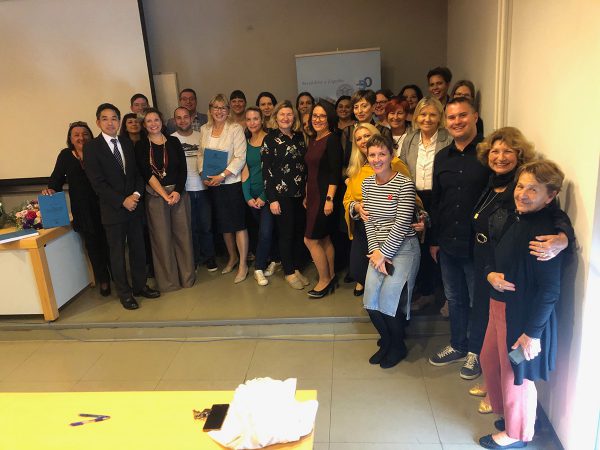Mile Ivanda, Ruđer Bošković Institute, Zagreb
The term nanotechnology refers to the understanding, application and control of matter at the scale dimension between 1 and 100 nanometers. Due to research in this area over the past decade there has been an unexpected technological advances in development of new ceramics, semiconductors, polymers, textiles, metal alloys, bio-and hybrid materials, medicines etc. that have contributed significantly to improving the quality of life through new and better products and services, enabling the creation of wealth and employment. Nanotechnology will enhance our standard of living; it will make our lives safer, improve the health care, and optimize the use of our limited but vital life resources. Imagine, for instance, a material that is lighter than aluminum and significantly stronger than steel used in construction of new spacecraft, skyscrapers, bridges, etc. Stronger and smaller computers will allow the complex calculations that will be able to predict natural disasters. New methods of quantum cryptography will provide greater security. Extremely sensitive nano-technological chemical sensors will be able to detect even single molecules. Hospitals will use the faster and less expensive diagnostic equipment. Lab-on-a-chip will at some point make a complete diagnosis of the patient and the examination time will be reduced considerably. Nanoprobes of miniature size (~ 100 nm in diameter), will travel through the blood and destroy cancer cells and will be able to penetrate clogged arteries and place the stents. Nanotechnology will provide new methods for efficient use of existing energy sources. Cars will have lighter and more powerful engine block, and will use new additives for greater fuel efficiency. Lighting in the homes will use a quantum point – nanocrystals size of several nanometers to convert electrical energy into light without heat loss, and solar cells will finally become economically feasible. Nanomaterials and nanocomposites will renew the development of hydrogen fuel cells. There will be a discovery of catalysts that enable decomposure of water in the presence of sunlight. Nanotechnology will provide effective water purification technology, allowing third-world countries access to clean water. Desalination of water from the ocean with the help of nanotechnology will provide enough drinking water and Green / Agricultural crops for all countries. All countries developed in the field of nanotechnology have a strategy on the basis of developing infrastructure, and stimulate research in promising areas of commercialization. In the development of nanotechnology Croatia is late and therefore will not be able to reap the most benefits, and any further delay in the adoption of appropriate measures will increase the price of inclusion in the “know-how” nanotechnological research and development. In Croatia there is a critical mass of scientists who are engaged in nanostructured research. The highest concentration of about of scientists is at Horvatovac within the Ruđer Bošković Institute, the Institute of Physics and Faculty of Science, which has been successfully engaged for many years in nano-structural studies and collaborates with other faculties such as FER, FKIT-a, FSB, etc., and is open to cooperation and support in the development of nanotechnology at other universities. At this point it is necessary to develop the strategy for the development of nanotechnology in Croatia which would bring together in a coherent manner the existing force defining the priorities for research and development and making a plan for completing the necessary research equipment. It is necessary to determine the type of required infrastructure with a priority to build the so-called clean room for the purposes of research and development that does not exist and it is the basis for the development of small and medium-sized farms with high added value in the micro-and nano-technology.
[BACK]

